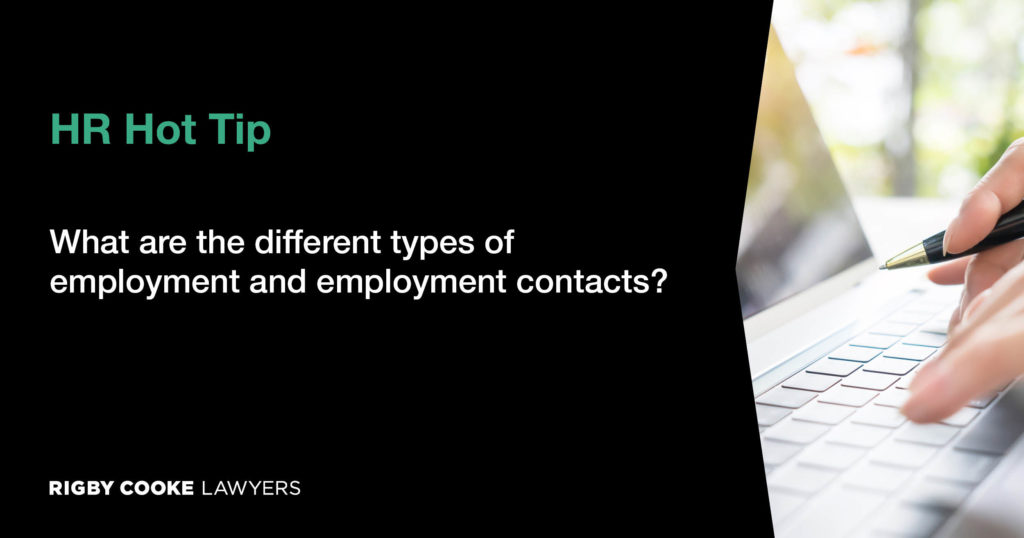Welcome to our series of HR interviews with Lawyer Monika Nosal who answers some of the most common questions asked by HR managers regarding employees’ legal entitlements.
In Australia, there are three main employment types:
- full-time employees
- part-time employees
- casual employees
There are also more specific types of employment, including:
- fixed-term or maximum term (which can be full-time, part-time or casual)
- apprentices or trainees
- shift workers
Non-employee engagement types include:
- daily hire and weekly hire (labour-hire)
- independent contractors
The terms of the contract for each of the above will vary depending on the type of employment or engagement. In this respect, it is important to note the following:
- All employees in the national system are covered by the National Employment Standards (NES) set out in the Fair Work Act 2009 (Cth) (FW Act). The NES are 10 minimum employment entitlements that have to be provided to all employees.
- An employment contract cannot provide for less than the statutory minimum set out in the NES and relevant modern award or enterprise agreement (if applicable).
- There are a number of factors which may determine whether a worker is an employee or an independent contractor, however, no single factor is determinative. The Courts look at the totality of the relationship between the parties when determining the status of a worker’s employment.
- Whether a person is an employee or independent contractor is relevant for the purposes of leave entitlements, superannuation, taxation and workers’ compensation.
- Incorrectly classifying an employee as an independent contractor may lead to an employer becoming liable for superannuation, unpaid annual and long service leave, and penalties.
The consequences of misclassifying any worker can expose employers to significant financial risk.
Employers obligations under the NES, modern awards, enterprise agreements and contracts can be complex, overlapping, and at times confusing.
Employers need to familiarise themselves with and understand their legal obligations in order to avoid any possible claims by employees (both existing and former) and unsuccessful job applicants, as well as prosecution by the Fair Work Ombudsman. Under the accessorial liability provisions of the FW Act, employers and individuals such as directors and HR managers can be personally held accountable for breaching workplace laws in certain circumstances.
A HR Legal Audit conducted by Rigby Cooke can provide the HR function and, in turn, provide employers with comfort in knowing that they are legally compliant, or at least provide advance warning of any potential compliancy issues before they become problematic.
| Disclaimer: This publication contains comments of a general nature only and is provided as an information service. It is not intended to be relied upon as, nor is it a substitute for specific professional advice. No responsibility can be accepted by Rigby Cooke Lawyers or the authors for loss occasioned to any person doing anything as a result of any material in this publication.
Liability limited by a scheme approved under Professional Standards Legislation. ©2020 Rigby Cooke Lawyers |

